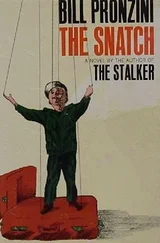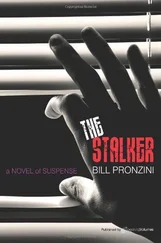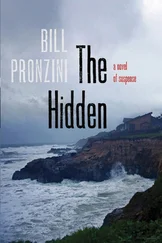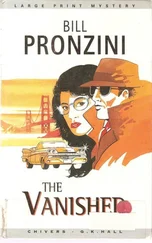Step five: I bought a secondhand IBM typewriter, the kind that had a ball element and came with extra elements in different type faces. At night in my apartment, I manufactured half a dozen detailed invoices, one for each of the dummy companies, keying each to specific job sites that Amthor was currently operating in various parts of northern and central California and that were guaranteed by size to last more than a year. In two cases there was a distance of several hundred miles between the job sites and the bogus company addresses, but this was not unusual. Amthor hired its subcontractors on a bid basis and its suppliers on a price-break basis, and the costs of relocating workmen and equipment and of long-haul shipping were always factored in.
I kept the total amounts of these first six invoices relatively small; the highest was a little more than $9,000, from Darwin Electric. They were as much a test run as an opening gambit, to satisfy myself that the forgeries were good enough to pass through the comptroller's office without question. Not that I had any doubt of it. In the past I had rubber-stamped invoices in the high five figures, and the comptroller's office had paid them without question.
Step six: At the office I established new accounts in the names of the six dummy companies, then okayed the invoices and sent them along one or two at a time in the daily batches. In each case I noted that the company had requested payment by direct deposit.
A week went by without incident. No one in the comptroller's office asked to see me about any of the new accounts. The invoices were absorbed into the system as easily as any of the legitimate ones.
Notifications of deposit began to arrive from the banks until I had all six. I didn't withdraw any of the money. And wouldn't until much later in the game. I had enough cash in my personal savings account to take care of expenses such as the Portland trip.
Step seven: I created a second set of invoices along the lines of the first set, with larger total amounts—upwards of $10,000 on both the Darwin Electric account and the West Valley Construction account. After two weeks I sent a couple of the invoices through for payment, since it wasn't uncommon for some of the high-overhead independent contractors to bill on a twice-monthly basis; the other phony invoices went in on the monthly schedule. From then on, I increased the sums of some invoices incrementally, while decreasing others so as not to raise any red flags.
Three weeks after I sent the letter to the Multnomah County courthouse, I received the copy of the birth certificate. In a sense that would have horrified Annalise's religious aunt and sister, Richard James Laidlaw—like Jordan Wise—had been reborn.
Step eight: I took another day's sick leave and drove to Sacramento, where I applied for a Social Security card at the local office in the name of Richard James Laidlaw, using the birth certificate as proof of identity. If I'd been asked why a thirty-four-year-old man was applying for his first card, I had a story ready: I had inherited a large sum of money and now that it was almost depleted, I was forced to go job hunting. But the lie wasn't necessary. The bored clerk looked at the application just long enough to make sure I had filled it in properly.
After another three weeks, I had my second piece of new identification. That completed the first phase of the plan; all the factors in the linked equations were now in place and functioning as designed. Nothing more needed to be done until the following spring.
Ispent only one more night at Annalise's apartment, shortly after that first night together. From then on, as far as anyone who knew either of us was concerned, we went our separate ways. It was vital that there be no apparent connection between us over the next year, no contact that could ever be traced. We had to appear to be two people who had dated casually for three months and then drifted apart, like thousands of others in the city. Two things made this easy: Our dates and our relationship had been casual before the plan. And neither of us had any family or close friends we confided in. Annalise had mentioned me to two women she knew at Kleinfelt's, but only in a general way; she was sure she hadn't told them my full name or where I worked. Even if she had, they were unlikely to remember it after a year's time. The only people I'd spoken to about her, Sanderson and a couple of others right after the wedding reception, weren't likely to remember either.
Of course, I couldn't stay away from her for long. She was a fire in my blood. And she proved to me, whenever we were together, that I had evolved substantially in her estimation. The nice, gentle, unexciting mouse had changed into a romantic figure, a man of mystery and danger. I did everything in my power to keep that image sharp. What she felt for me wasn't love, I didn't delude myself about that, but neither was it mere fondness any longer. I was convinced it would continue to grow and deepen, until one day, maybe, it would be love.
We developed a schedule that suited both of us. Once a week, I called her at her apartment, from a pay phone so the calls could never be traced to my home number. Twice a month, we spent a weekend together at a prearranged place well away from the city—the Monterey Peninsula, the Sierra foothills, the Mendocino coast. We decided on the location in advance, picked a motel or lodge from the Triple A guidebook; I made the reservations by pay phone in an assumed name; we drove there in separate cars. Motel registration cards require a car license number, but no clerk ever bothers to check whether the number you write down is the correct one. And of course I always paid cash for the room, meals, gas.
These weekends added spice to our relationship. Assignations, the secret meetings of conspirators. As soon as we were alone together we'd be at each other in bed—two, often three times before we did anything else. If I'd had any concerns that she was sleeping with the other men she was dating, her passion on those weekends would've knocked it right out of my head. She was mine and that made me want her even more. My sex drive matched hers; I was no longer insecure about my performance. Annalise had been sexually active since the age of sixteen and she was a gifted and patient teacher; she helped me evolve from a student into an innovative disciple.
When we weren't making love, or out playing tourist, we talked about the Plan. Plan with a capital P by then: it was the centerpiece of our lives. I kept her apprised of each step, but only in the most general way. "Everything is in place now," I would say, "and the money is starting to accumulate." And "The birth certificate came this week." And "I'm about to increase the amount of cash coming in each month." I reiterated that it was for her own protection—the less she knew, the better off she was if anything went wrong.
There was another reason, too. Each little morsel I passed on only whetted her appetite for more. Tantalized her, kept her in a constant state of suspense. It grew into a game, a kind of verbal foreplay. I dropped hints, she begged for more details; and when I refused, she offered to do this or that in bed in exchange for another tidbit of information. But I never gave in. There was no need. We were already doing most of what she offered as it was.
The one thing we did discuss in detail, and often, was where we would go to start our new life together. Annalise's first choice was Paris, then New York, then the French Riviera or one of the Greek islands. None of those places appealed to me. New York was too expensive and the chance of recognition there too great. Paris and the French Riviera were simply too expensive. More than half a million dollars was a small fortune in those days, but you could go through it in a hell of a hurry in overpriced cities or jet-set playgrounds. My objection to a Greek island, to most locales where English was not the primary language and Americans not the primary inhabitants, was that U.S. expatriates with plenty of money and no visible means of support were liable to stand out. The last thing we could afford to do was to attract attention.
Читать дальше












